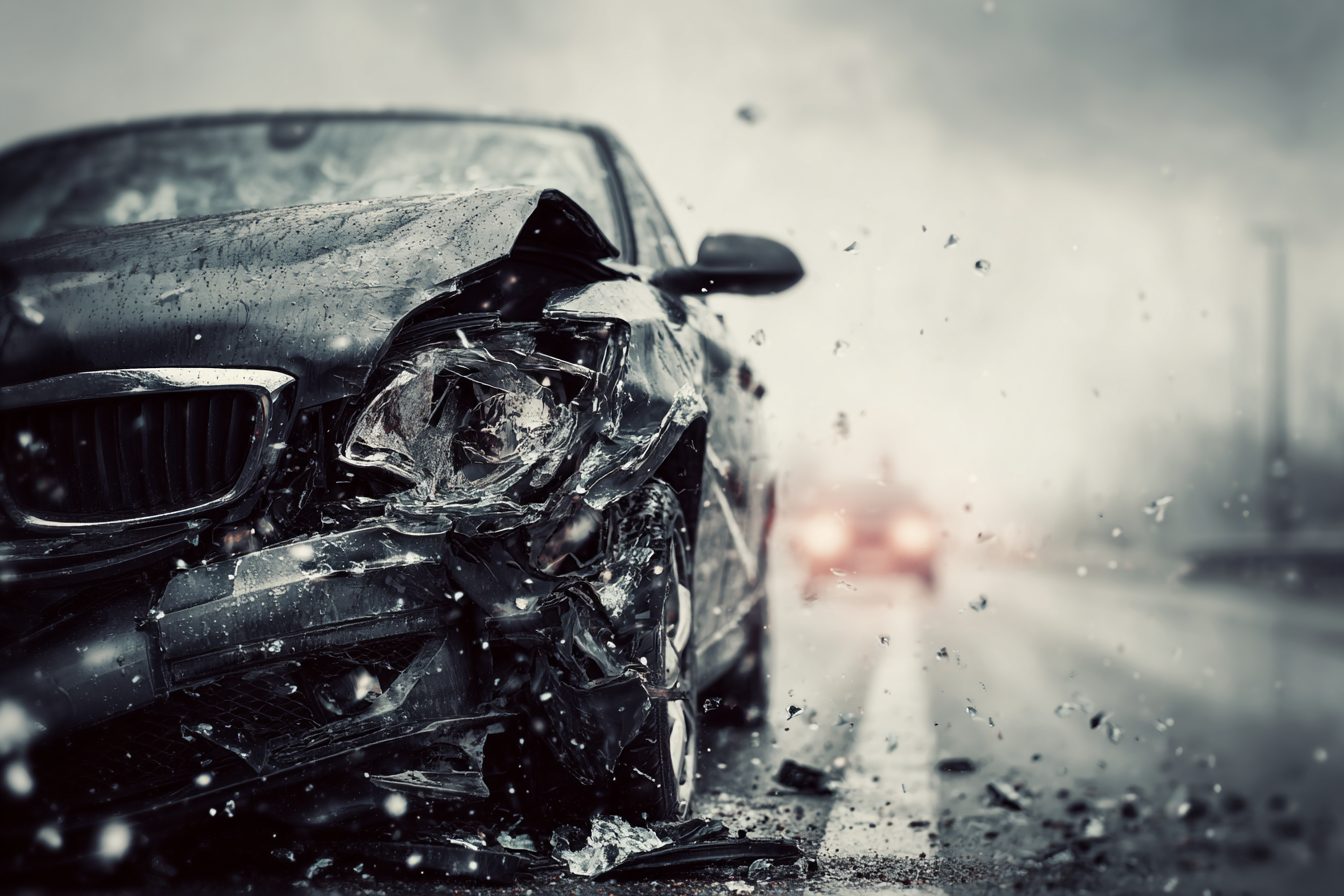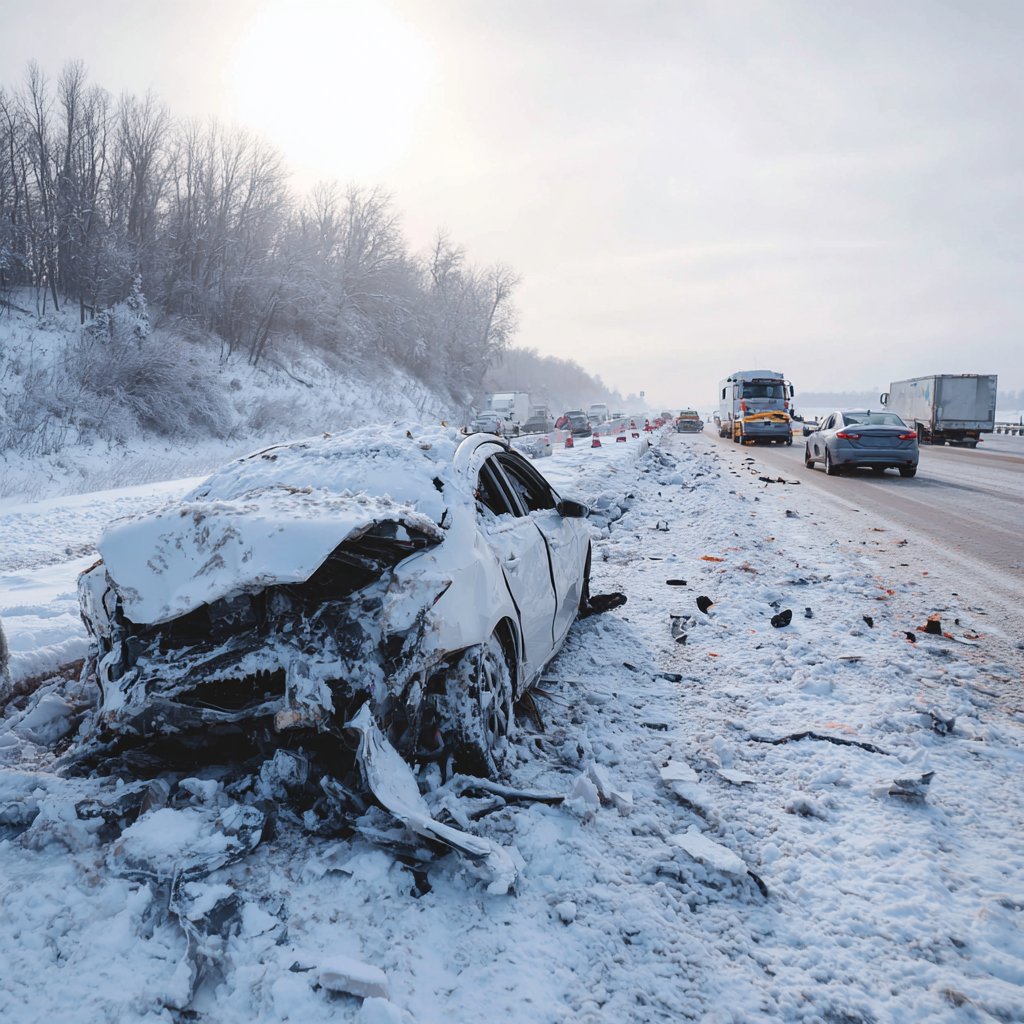Can I Insure a Car Not In My Name? Your Complete Guide
TLDR: What to Know Before Insuring a Car You Don’t Own
Most insurers won’t offer standard policies unless you’re on the title.
Non-owner policies provide basic liability if you borrow or rent cars.
State rules differ: Florida and Minnesota require PIP, Wisconsin doesn’t.
Being added to someone else’s policy may be a cleaner option.
Shoreline Public Adjusters helps with car damage and diminished value claims.
Let’s Get Real About Car Insurance and Ownership
This question comes up more than you’d think: Can I insure a car that isn’t registered to me? The short answer is—sometimes. But it’s not as simple as just calling up your insurer and asking them to write you a policy on someone else’s car. There are legal, practical, and liability-related hurdles to understand.
If you're borrowing a car for the short term, helping out a family member, or even in a situation where you drive a car regularly that’s not yours on paper, the options can get confusing fast. And when you’re trying to do the right thing—especially when it comes to something as important (and potentially costly) as auto insurance—it’s frustrating to run into roadblocks that don’t make much sense on the surface.
That’s why this guide exists: to unpack the why, the how, and the workarounds that might help you get the coverage you need—legally and responsibly.
Why This Actually Matters
You might think this is a niche situation, but it comes up more than you'd expect. People share cars. Families manage multiple vehicles with complex ownership. And sometimes, life just isn’t neat. Maybe your name’s not on the title, but you’re the one driving it daily. So you want to get covered—but you hit a wall.
Most insurers won’t write a traditional policy unless you’re listed on the car’s title or registration. That’s because of a concept called “insurable interest.” If you don’t stand to suffer a financial loss when the car is damaged or totaled, the insurer sees too much risk.
But “no” doesn’t always mean “never.” It just means you may need to take a different path.
What You’ll Learn Here:
The basics of who can insure what (and why it’s not always straightforward)
How non-owner car insurance works and when it’s the right fit
State-specific requirements in Florida, Minnesota, and Wisconsin
How liability insurance plays out when you're not the car owner
Workarounds like being added as a named insured or co-owner
Mistakes people make and how to stay covered legally and financially
What to do if you’ve already been in an accident
Where to get support if the claims process isn’t going smoothly
The Core Issue: Ownership and “Insurable Interest”
So let’s talk about the root of this entire problem. Insurers want to cover you when you have something to lose. That’s the essence of “insurable interest.”
If you don’t own the car or aren’t financially responsible for it, there’s less incentive for you to take care of it. That’s the logic, anyway. And while it can feel unfair—especially when you are the one taking responsibility—it’s baked into the system.
But the truth is, you can still protect yourself as a driver even without owning the vehicle. It just requires looking at different types of policies.
There are two main routes that can work depending on the specifics:
Non-owner car insurance
Being added to someone else’s existing policy as a named insured or co-driver
These aren’t always guaranteed fixes, but they’re worth considering based on your situation.
Non-Owner Car Insurance: When You Don’t Own, But Still Drive
A non-owner policy isn’t flashy. It doesn’t include collision or comprehensive. It won’t pay for damages to the car you’re driving. And it doesn’t apply if you live with the vehicle owner (many insurers exclude that situation).
But what it does do is protect you against liability if you’re at fault in an accident. That includes bodily injury to others, and in some cases, property damage.
This kind of policy is helpful for:
Drivers between cars who still rent or borrow occasionally
People who use car-sharing services like Zipcar or Turo
Those with suspended licenses who need proof of insurance to get reinstated
It's relatively inexpensive—sometimes under $30/month—and gives peace of mind if you’re driving but not owning.
However, you’ll want to read the fine print. Some insurers won’t write these in all states, and coverage options can vary widely. Always make sure the limits meet your state’s minimums.
State-by-State: What Florida, Minnesota, and Wisconsin Require
Florida (No-Fault State)
Florida’s PIP requirement makes non-owner policies a little more complicated. Personal Injury Protection pays for your medical bills and lost wages—regardless of who caused the accident. Even if you’re not at fault, your insurer pays out first.
Minimum requirements:
$10,000 in PIP
$10,000 in property damage liability
If you’re a part-time driver in Florida or using someone else’s car, double-check that your non-owner policy includes PIP. Not all do by default.
Minnesota (No-Fault State)
Minnesota takes it even further. Non-owner policies must include up to $40,000 in PIP, split between medical and economic losses. And yes, insurers will hold you to that—even if you’re only borrowing a car now and then.
Minimums:
$30,000 per person / $60,000 per accident for bodily injury
$10,000 for property damage
$40,000 PIP split 50/50
This makes policies slightly more expensive, but it also ensures better protection.
Fun Fact: In Minnesota, a non-owner car insurance policy averages around $300 a year. That’s a pretty manageable cost for drivers who need basic liability coverage without owning a vehicle—especially in a state with strict PIP requirements.
Wisconsin (Tort State)
Wisconsin is different. It’s not a no-fault state, so there’s no mandatory PIP. But that doesn’t mean minimums don’t apply. You’re still required to carry liability insurance—even on non-owner policies.
Minimums:
$25,000 per person / $50,000 per accident for bodily injury
$10,000 for property damage
Uninsured motorist coverage is technically optional, but it’s a smart addition if you’re on the road regularly.
Nationwide, non-owner car insurance typically costs about $325 per year. It’s one of the most affordable types of auto insurance you can buy, and a great way to stay legally covered if you drive occasionally but don’t own a car.
How Liability Works When You're Not the Owner
Liability coverage is often misunderstood, especially when multiple policies are involved. Here's how it plays out:
If you get into a crash while driving someone else’s car:
Their policy pays first. That’s the primary coverage.
Your non-owner policy (if you have one) kicks in second. It covers any leftover costs, up to your policy limits.
Let’s say your friend’s policy covers $25,000 and you’re liable for $35,000. If your non-owner policy has $50,000 in liability, it can cover the remaining $10,000.
This helps keep you from being sued or held personally responsible.
Being added as a named insured or additional driver to the owner’s policy can also offer protection, especially if you’re driving the car regularly. But it has to be done right, with the insurer’s knowledge and consent.
Alternatives If You Drive One Car Regularly
Some situations don’t call for non-owner insurance. They call for better integration into the existing coverage. If you're consistently behind the wheel of one vehicle you don’t own, consider:
Being added as a named insured (not just a listed driver)
Co-titling the car if the owner is open to it
Getting a joint policy with the vehicle’s owner
These setups often lead to better coverage terms—and fewer headaches if a claim ever arises.
Just make sure your name appears somewhere on the insurance documentation. That can make all the difference during a claim.
Want to Lower Your Rates? These Actually Help
Non-owner insurance is usually cheaper than a standard policy, but there are still ways to cut costs:
Maintain a clean driving record. Accidents and violations follow you even if you don’t own a car.
Bundle your policy with other insurance (like renters or home).
Consider usage-based programs if available.
Ask about discounts for low mileage, safe driving courses, or paying upfront.
Insurers won’t always advertise these options—so it’s worth asking directly.
Non-owner insurance is often 40% cheaper than a standard auto policy. Since it doesn’t include collision or comprehensive, you're not paying for coverage you don’t need—making it a cost-effective option for the right situation.
Common Mistakes People Make (And How to Avoid Them)
Relying on your credit card for rental insurance. This usually doesn’t cover liability—only the car’s damage.
Skipping PIP in no-fault states. Don’t assume you’re exempt. You need it to meet legal requirements.
Failing to disclose regular use. If you drive a borrowed car often, the insurer needs to know.
Assuming permission means coverage. Being allowed to drive someone’s car doesn’t automatically mean you’re insured.
Being upfront and honest about how often you drive—and which vehicles—can prevent issues later.
What to Do Next
If you’re regularly in the driver’s seat of a car that’s not legally yours, don’t wing it. Here’s what you can do now:
Review how often you drive and which car(s)
Check if you’re named on the vehicle’s current policy
Talk to insurers about non-owner or named driver coverage
Compare multiple quotes—not just by price, but by coverage depth
Keep a printed and digital copy of your policy handy
If you're already in a situation where you’ve had an accident in someone else’s car, or your claim is being denied, it’s time to get help.
Shoreline Public Adjusters: We Handle Car Damage and Diminished Value Claims
At Shoreline Public Adjusters, we help policyholders get what they’re owed—not just with property, but with auto damage and diminished value claims too. A lot of drivers don’t realize they can claim loss in value after an accident—even if repairs were made. If you weren’t at fault, or you feel the payout was too low, we can step in.
We work across Florida, Minnesota, and Wisconsin, and we understand how each state handles auto insurance claims. Let us review your case and see if your claim was underpaid—or denied unfairly.
Shoreline Public Adjusters, LLC
780 Fifth Avenue South
Suite #200
Naples, FL 34102Email: hello@teamshoreline.com
Phone: 954-546-1899
Fax: 239-778-9889






Discover comprehensive burst pipe repair costs for Minnesota and Wisconsin homeowners. This detailed guide covers repair pricing from $500 to $15,000+, what insurance covers, hidden costs like water damage and mold, and how to prevent expensive pipe failures. Learn cost factors including pipe location, material type, and damage extent. Expert insights help you understand when repair versus replacement makes sense and how public adjusters maximize insurance claims for water damage restoration.